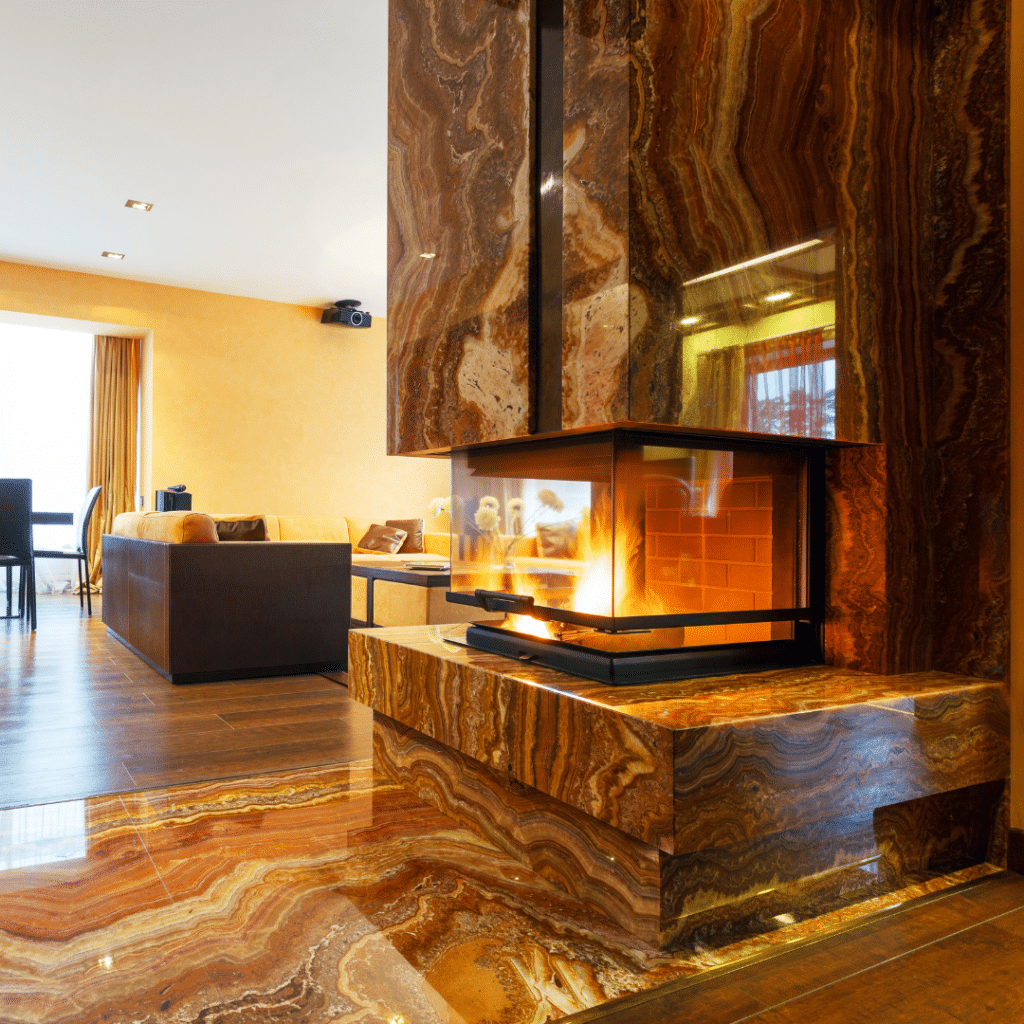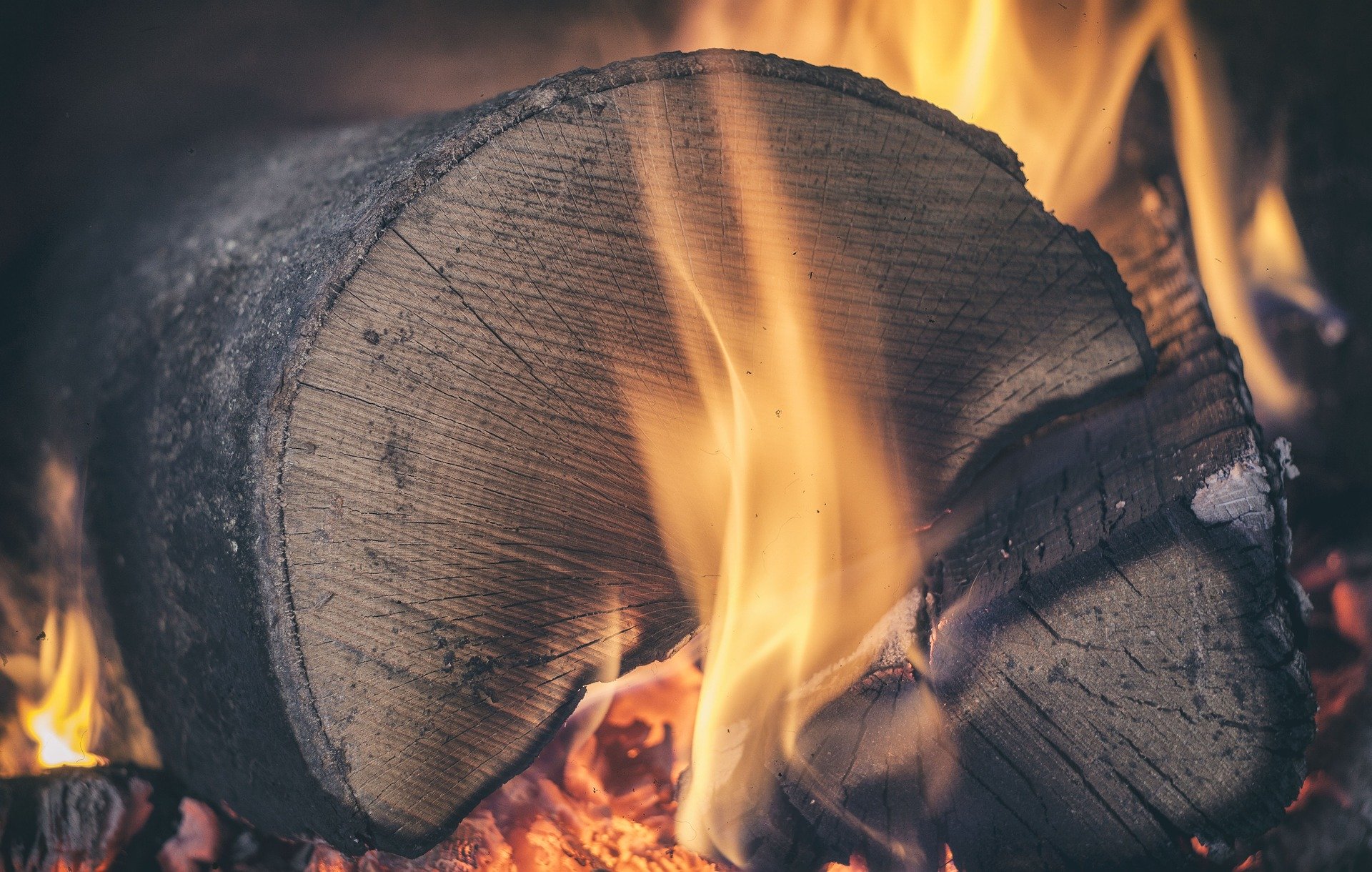Gathering around the fireplace during the cold winter nights has been always a favorite pastime for family members. Regardless of the fuel used to make those flames dance, observing them and enjoying their warmth is an ancient human ritual that brings comfort to many. When deciding which type of heating to invest in, homeowners may weigh many factors such as efficiency, cost, ambiance, and maintenance. Here, we will guide you through a few advantages and disadvantages of gas and wood fireplaces to assist you in making your decision.

Aesthetics
The free flowing, natural flames rising out of crackling wood log certainly seem to have a more genuine and realistic character. Wood fires tend to provide a more homey, rustic, pleasant feeling than the flames produced by gas. For some, gas flames appear too “mechanical.” Although some gas fireplace manufacturers have improved their techniques to make the flames seem more realistic, the truth is, they just won’t ever match the shape, the sound, feel, and smell of crackling wood logs.
Maintenance
Wood-burning fireplaces demand diligent attention each year by a chimney sweep to clean the soot and ash left behind from burnt logs, and to ensure that your chimney and fireplace are free from cracks and leaks. For gas fireplaces, chimney sweeping is unnecessary. Only a few minor DYI steps are required to check that the venting system is working safely. Still, if your gas fireplace model has a fan to spread heat, you might want to have a professional look at it every once in a while.
Cost
The question of how much to spend is different for everyone and depends on what you value, how much you value it, and the size of your budget. Before starting to compare costs, keep in mind that when you invest in a fireplace, whether gas or wood, it will add a good value to your home when can later be recovered when you sell. The National Center for Real Estate Research claims that fireplaces tack on about 6 – 12 percent on the selling price.
For gas stoves, you could save money on monthly heating bills by adjusting the thermostat and keeping the temperature lower. While gas is not terribly expensive, firewood is still cheaper, and wood is a more renewable resource.
Efficiency
Gas fireplaces provide efficient and clean-burning heat, filling the home with warm air. Depending on the model, they tend to be more efficient than wood fireplaces. For wood-burning fireplaces, a large amount of the heat that is generated can disappear up the chimney; they also produce air pollution inside and outside of the home.
While the benefits and disadvantages may appear to be evenly split betwixt the two, the decision between a wood and a gas fireplace depends on your individual needs and preferences. To get started on installation of your new fireplace, please give us a call at Clean Sweep today.



